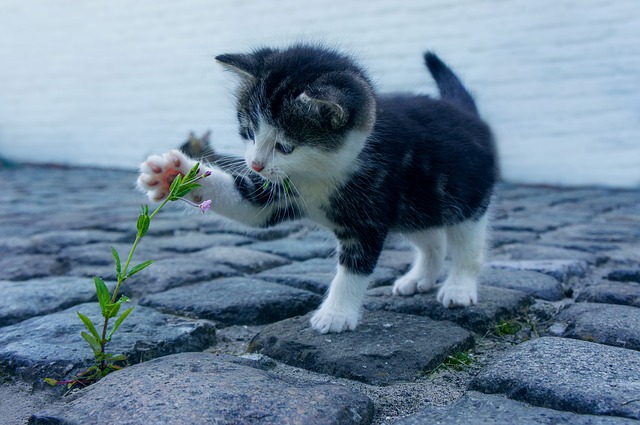It is very difficult to have a full game of Dungeons and Dragons without combat, so most of the time settle for non-combat encounters in our D&D. If you want to have a full campaign without combat it will be extremely difficult, but it is possible. Either way, this article will help teach you how to make successful non-combat encounters.
Encourage roleplay, follow the four steps (generating encounters, peak curiosity, conflict, and impact) to make amazing non-combat encounters.
After those two important beginner steps, we will move onto more advanced concepts to consider and some ways to make combat discouraged in your games.
I hope that you learn something and enjoy. If so, please leave a comment telling what you liked the best so that I can keep producing the best material for you, or leave a comment telling me what I left out.
How to make your game non-combat focused
Session 0
You must have a session 0. This is very important in order to gauge if you can even have a non-combat oriented game. If your players do not want this, do not make a non-combat based campaign. Your player’s opinions are important too. Listen to them or the game will turn sour in an instant.
In your session 0 tell your players what you plan so that they will not make combat-based characters. Nothing is worse than making a character and then having them be completely worthless. If you let your player’s know before they make characters, then you are more likely to get your idea off the ground. Otherwise, most people will not be open to the idea of a primarily non-combat campaign.
This is the first thing you must do before pressing forward, and if your players are not okay with this type of game then don’t push it. You will one day find a group that likes primarily non-combat encounters in D&D, but it is not today.
Encourage RP by example
If your group is cautious about non-combat encounters, immerse them in roleplay (RP). If you make amazing RP happen and the players see this, they will want to join in. Happiness is contagious, and if you are showing a lot of joy when you RP other players will as well.
On the flip side, if your players see that you are just dead inside when a character talks to the party, they will be influenced and become bored of RP.
If you do run a non-combat based campaign, it is still important to be energetic and encourage RP. If you are not having fun, why should anyone else?
Reward RP more than combat
In third edition Dungeons and Dragons, I had a few friends that loved to play. We will call one of them Mat. Mat loved the game and liked to play, but like all players, he loved to level up and get that illustrious EXP!
Mat played the game and eventually found out that combat was the best way to acquire this tantalizing EXP, so he became a combat monster. Games quickly turned into hack and slash games, and RP did not exist.
Was it the player’s fault this happened? No, Mat just wanted to level up and have fun like most players. The fault was with me. I rewarded him for killing monsters, and hardly gave any exp for roleplay. If Mat’s goal is to level up, why would he choose the option that gave him fewer benefits?
If you want to have more RP, make it give a greater reward. I would recommend a 5/1 ratio. Combat is a way to level, but quests and RP being the main source of EXP encourages players to RP. This is why milestone leveling is becoming popular. Instead of training your players to kill, you train them to focus on the story and more RP since RP is more efficient.
5 steps to non-combat encounters in D&D

Generating encounter ideas
Most people have a problem coming up with non-combat encounters in D&D, and I understand why. We have been trained through various other games to think of a million combat scenarios, and never consider roleplay.
If you want to be lazy, here is a site to help generate random non-combat encounters. If you don’t want to be lazy or have gone through all 100 scenarios, then follow these steps.
Goals
What do you want your encounter to be based on? Do you want a merchant stranded on the side of the road? If so that is great, but what is the point? What is the goal of that encounter? You need to have a purpose to make a decent encounter, otherwise, there is no ‘encounter’ instead it is just sight on the road.
The goal in these encounters should never be for your players. Don’t try to get them to do anything, because it will fail. Players are chaotic creatures that smell intent and kill it on the spot. Instead, have a goal for your NPC.
Why does the merchant need the player’s help? Why would he try to get help from strangers armed to the teeth instead of possibly hiding and saving his life from these potential bandits? Does the merchant need to get somewhere fast and that is why the wagon was damaged leaving him stranded? If so, would he really tell them the embarrassing truth?
Now that you have a goal for your NPC, you have to pique the player’s curiosity.
Peak curiosity

I know that I told you never to try and get the players to do anything, but you still want them to interact with the situation. Give them some reason to care. First, the merchant needs a name so that the players can get attached to. Let’s call him Stevanio.
Stevanio can deal in something that interests the players, thus making it worth their time to help him. Perhaps Stevanio has connections and tries to convince the players to help in order to receive a ‘favor’ later.
Give your characters a reason to help Stevanio or they will just pass him by. At worst, they will rob him blind and be the bandits that he should have hid from. Make something happen that can directly benefit the players.
People are more likely to help if it will benefit them, but if you must you can make the players help by coercion. Either way, make it interesting and give your players a reason to interact.
Conflict
What if Stevanio was lying about his political connections? This can cause a whole host of conflict and lead to a later story piece for your players.
Stevanio’s bodyguard appears out of the woods somewhat drunk and tells the party to back off, thinking that it is his job to protect the goods and help the cart or he will be docked pay. Either way, he doesn’t want the party to help so that he can get his full pay instead of half pay.
Make something happen in the encounter! An encounter is boring and not worth the player’s time if nothing interesting happens, so have something interesting lined up that causes some sort of conflict.
Impact
Your players have completed the task, but what did they get out of it? Gold is cheap and forgettable, so you need to make an impact with your encounters. Stevanio runs a few tailoring shops and decides to sponsor the party for their good deeds and help. Now the whole situation is a business arrangement with a hopefully pleasant man that the party can talk to. That wagon incident is not something memorable because it led to something more.
Instead of a future business arrangement, Stevanio could be a merchant for exotic animals and end up giving the party an exotic pet to take care of that can fly or hide. Preferably one of those two in order for them to take that animal with them on adventures and not forget about it, but you get the idea.
Make your end result be unexpected and interesting. Have the party remember this moment due to the surprise and continued impact of that exchange. Now your RP encounters mean so much more and are so much more memorable.
Advanced concepts
RP goes quickly by compared to combat
“Roll to seduce the barmaid.” “I got a natural 20!” “Timmy goes away for a night and does… things. What do the rest of you do?”
See how quickly that encounter went by? A whole evening went by in a flash! Most combat does the exact opposite. Monsters come out and surprise the party for only two minutes or less of in-game combat, but it is two hours later in real life. RP goes by a lot quicker.
Since non-combat encounters have less impact in the real world’s time, you will need to have more non-combat encounters in D&D or make the non-combat encounter be an enormous event. This event will allow for many different roles, scenarios, and points where the party mus think.
If you are able to provide the party with time to think, you will not run out of ideas quickly. Most parties cannot come to an intelligent decision quickly and need some time. Non-combat encounters force the party to think, and there can be a lot of discussions.
Make sure you factor time in when creating a session or campaign with non-combat encounters. Don’t leave your party bored and out of things to do.
RP in downtime

Even the most hack and slash games have downtime. In this downtime, the party might forge new items, get favors, or whatever else. Instead of just rolling and saying all of those things happen, go over them all in detail. How did you get the materials to make the sword? Did you buy them from a merchant? If so, how did you find a merchant that sold that quality of metal? Did you hire a blacksmith to make a masterwork weapon or craft it yourself?
You get the idea. You can make a mountain out of a small thing by going into detail.
One other thing that you can do in downtime requires a week or so of reflection before leveling. In this time, you tell your players that they are resting and contemplating their past actions. This is where they put that experience into practice and learn something from it, but how? What do they do? Ask your party all of these things, and leveling up can become an interesting and intensive process. More importantly, you can figure out how the barbarian got a level in wizard.
RP is easiest done in non-hostile situations
A dragon swoops in and says “hello” to your level three-party. What do they do? Most likely they will try to talk to it since running will get them killed and fighting will make them die much worse than running would. Rp is easiest done when the players do not want to fight and are not prepared to fight. If the party is not mentally ready to fight, most people will not fight.
Another great example of this is the old man. The party sees an old man sitting on a chair next to the road smoking a pipe. He greets them and starts talking to the party. The party is now curious since it has piqued their curiosity. The party is unlikely to attack and will talk to the man until the man shows hostility.
Here we see that the unexpected situation does not need to involve an overpoweringly strong enemy. The players will RP in almost any non-hostile and unexpected situation. Just make sure that the NPCs the players encounter are obviously non-hostile.
Make Nice NPCs
Many parties do not talk with NPCs because they are tired of getting burned. “Why did you attack the noble? He was only trying to help you!” “We don’t care. He seemed nice, but he is a noble and every politically powerful person betrays us so screw em. They all need to die.”
This happened in a game of mine once. I tried to make clever evil lawful villains threaten the party and only use lawful evil villains as the main bad guys. The party caught on real fast and didn’t trust anyone. I made my party become murder hobos. Sad day.
Don’t make your NPCs all be malevolent towards your players. They need some light, something good to show that the world is not all dark and horrible. If they are taught that everyone is bad, they will not care about others. The party will turn into murder hobos, and it will be your fault.
Don’t make the same mistake that I did. You can have some rotten eggs, but give your players decent humanoids that they can connect with.
Discouraging combat
Make combat brutal
Aside from the standard gory descriptors, make your combat especially brutal. Make your players never want to get into combat. Crits could have a chance to maim others. Have them roll their constitution after the crit and if they roll below some body part is missing. Roll 1d20 to see how bad and then tell them what is gone.
If you do this, you should let them know that this is an option in session 0. Make combat brutal and hellish so that players will not want to partake in combat unless it is a last resort. You should make the whole world echo this sentiment by having people not want to get into combat.
One more way to make combat brutal is to say that divine healing magic is not working. No heals except for natural healing. Magic could be haywire, or your world can work differently but make sure that people know this in session 0. If the party doesn’t have a ton of heals to dump onto others, they will think twice before engaging.
This breaks the system a bit, but only if there is combat. This is fine if your goal is to highly discourage combat.
3d6 stats
You do not have to do 3d6 in order stats, but you should give them bad stats. This means that what the players face should be weaker to even the playing field, but the players feel weaker. They are no longer these massive demigods who can get away with math, but instead, have to be careful. Bad stats can discourage a lot of combat, and make the game far more interesting.
Unbeatable by force
Make the antagonist one that cannot be beaten by force. The thieves guild or a cult is a great way to do this. Even if you destroy the hideout, it will not solve the problem. Instead, the players have to find a more permanent solution and make the guild or cult become inert. Force will not work.
Having an antagonist unbeatable by brute force makes your players focus on more things than just combat. I highly recommend taking this approach if you want more RP to happen. The first time I did it, I was almost overwhelmed with how much RP we ended up doing.
Conclusion
I have helped you establish a more focused RP game through your own actions.
I have given the four steps needed to make non-combat encounters in D&D work, and I have given you advanced concepts to help you in your quest for non-combat Dungeons and Dragons.
Lastly, I have given you ways to encourage RP and discourage combat.
I hope that I gave you enough ways to help make your game more RP focused and that you learned how to craft Non-combat encounters in D&D.
Lastly, if you want to support the blog you can get stuff for it! We offer The Cube as a custom add on to your game and our affiliates. At Dice Envy they offer well made and cool looking dice and Dungeon Vault helps to help give you extra tools to make your campaign even better! I prefer to use my dice from Dice Evy since they are actually balanced and love to use the tools from Dungeon Vault. Lastly, we do have a Patreon if you want to support us more directly.
This has been Wizo and keep rolling!





Thanks for all of your articles, Wizo! I’ve read about twenty of them in the past four days, and I have so many ideas and solutions for my campaign. Through reading your stuff, I’ve been able to revamp my major bosses, create decent and meaningful NPCs, and make combat less stupider. (I have one major power gamer who is a tiny furry fey mage, with added innate spellcasting, that can regen. It got bad, fast.)
This article in particular was good for me, as today we had almost an entire session about roleplaying, and it was awesome. One of my players is on a personal tangent quest to establish a pancake restaurant franchise/empire throughout the world, and she rained pancakes down on all the puny tavern dwellers’ heads today. Thanks for your advice, I’ll leave a comment on another page if I have questions!
I am glad that I was able to help you and am very glad to hear that the articles are helping improve your campaign!